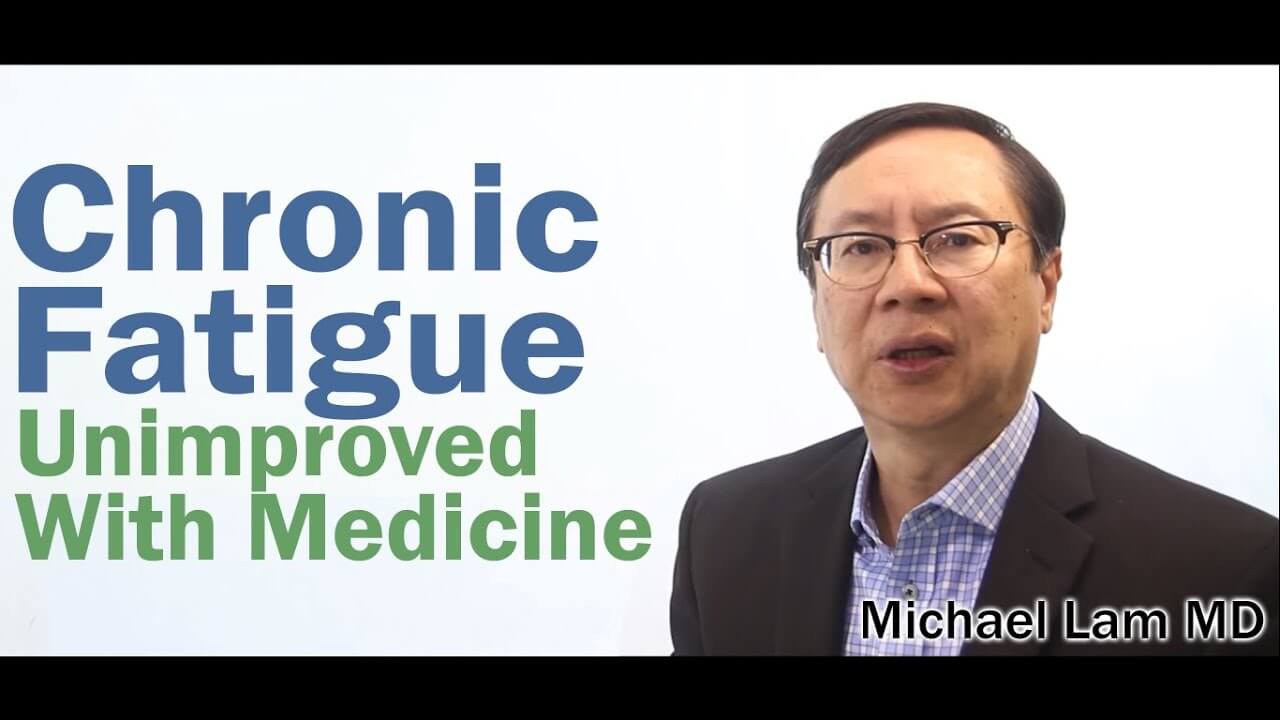
Conventional chronic fatigue syndrome remedies often focus on relieving symptoms rather than resolving the root of the problem. The reason for this is two-fold: first, the exact cause of the syndrome is still unknown, and is likely multi-factorial. Secondly, there are other conditions that can either be causing these symptoms or adding to them, and some of these conditions are not yet recognized by mainstream medicine: namely, Adrenal Fatigue Syndrome (AFS) and NeuroEndoMetabolic (NEM) Stress Response dysregulation.
We’ll be covering these issues in this article and also talking about the current chronic fatigue syndrome remedies available. But first, let’s briefly recap what chronic fatigue syndrome (CFS) is.
CFS, which is also termed myalgic encephalomy, is a condition whose main symptom is unexplained chronic fatigue. The fatigue, or tiredness, is so extreme that nothing really improves it. No matter how much you rest or sleep, you still feel an overwhelming tiredness. Most sufferers say it’s unlike any exhaustion they’ve ever felt before. And in general, this fatigue gets in the way of normal, everyday functioning.
 To be diagnosed with CFS, you need to have at least another four symptoms from the following list besides the chronic fatigue:
To be diagnosed with CFS, you need to have at least another four symptoms from the following list besides the chronic fatigue:
You may also start to feel anxious or depressed as your symptoms interfere with your wellbeing and lifestyle. Although these are not CFS symptoms per se, they should also be factored into the equation when looking for medical care.
Many of these symptoms are also present in Adrenal Fatigue Syndrome, or AFS. AFS is a condition where your adrenal glands dysregulate. Your adrenals secrete your body’s main anti-stress hormone, cortisol. So when you’re facing chronic stress, whether physical or psychological, they have to work more and more. After a while, they are overworked and become exhausted.
Symptoms of AFS include fatigue, sleep problems, weight gain, brain fog, anxiety, mild depression, hair loss, dry skin, loss of libido, PMS, infertility, hypoglycemia, salt and sugar cravings, dizziness, gastrointestinal problems, lowered immunity, heart palpitations, blood pressure issues, and food and drug sensitivities, among others.
 At this time, AFS is not yet recognized by the mainstream medical community, much like CFS was until very recently. But we believe that sometimes AFS is misdiagnosed as CFS, especially if you go to a doctor that isn’t aware of or doesn’t recognize AFS. This is a problem because the usual chronic fatigue syndrome remedies do not help with AFS. In fact, they’re not very effective with CFS either. This is because they only target symptoms rather than the possible underlying issues.
At this time, AFS is not yet recognized by the mainstream medical community, much like CFS was until very recently. But we believe that sometimes AFS is misdiagnosed as CFS, especially if you go to a doctor that isn’t aware of or doesn’t recognize AFS. This is a problem because the usual chronic fatigue syndrome remedies do not help with AFS. In fact, they’re not very effective with CFS either. This is because they only target symptoms rather than the possible underlying issues.
We recommend that you consult with a health professional who has experience with both conditions. That way you can get your condition more accurately identified and develop a more appropriate recovery plan.
Since neither condition can be reliably tested in the lab, this health professional will identify your condition based on your symptoms, medical history, and lifestyle. And this requires specific skills. Lab tests can and should be used, however, to rule out other possible conditions, such as anemia or hypothyroidism, for example.
As we go through the different management methods for CFS, we will also mention what we generally recommend for AFS sufferers as well. That way you have a bigger picture of the possible options you can consider with your health professional. And you can also understand how some remedies may affect your condition in the long term.
The chronic fatigue syndrome remedies your doctor recommends will depend on which symptoms you have and which ones are the most severe. One person may have more sleep issues and less joint pain, so they would need to focus on improving sleep. Another person may have joint pain and sore throat, so they need some form of pain relief.
Unfortunately, this approach of just attacking symptoms as they pop up is not very effective or sustainable. You might end up getting worse, or at best, you’ll manage your symptoms but never regain full vitality and wellbeing.
So it’s important to focus on diet, supplements, and lifestyle changes as much as possible in order to improve overall.
You may also have to involve family and close friends in these changes as you will likely need support. Also, do your best to implement systems and plans that can help you cope with the stress of the condition and help you manage your everyday activities.

Sleep issues can really aggravate your CFS and your overall health. So if you aren’t getting a good night’s rest, improving your sleep should be a main focus. A good doctor will make sure you are implementing a sleep hygiene routine before looking into medication. And this is also something we recommend to our AFS clients.
This sleep hygiene routine should include a regular, early bedtime, keeping your room cool and dark, stopping the use of screens for at least two hours before bed, and removing any sources of distraction or disturbances, such as phones. You can read a boring book or meditate before bed to help you wind down. You may also want to stop drinking liquids an hour or two before bed so you don’t wake up too often to use the toilet.
With AFS, we also recommend that you eat a light snack of some protein and healthy fats, such as nuts, in order to avoid a hypoglycemic episode during the night.
With CFS, your doctor may then suggest over-the-counter sleep aids, such as antihistamines. And if those don’t work, you may be given prescription sleep medication. The thing to consider here, however, is that sleep aids and sleep medication may make your brain fog worse. You can end up feeling more drowsy and less able to focus. So unless they are absolutely necessary, it’s better to try to improve your sleep naturally. And if you do take them, they should only be a temporary solution until you find another way.
Many CFS and AFS sufferers rely on caffeine and other stimulants to get them through the day. This may help short-term, but in the long-term it will create more problems. With AFS for example, stimulants put even more pressure on the adrenal glands when what they need most right now is a break.
The use of stimulants can also extend to medication as well. Some chronic fatigue syndrome remedies will include medications that are stimulants, such as ADHD medication. These drugs can and do help with fatigue, brain fog, and concentration. But at the same time, they can make your condition worse after a while. You might end up with a crash, which you then manage by increasing your dosage, which can then lead to a bigger crash, and so on.
If, for whatever reason, you and your doctor still decide that these medications are your best course of action right now, then you should try to aim for the lowest possible effective dose. Also, you might respond better to one type vs another, so you may have to experiment for a while.
We do not use these types of medications with our AFS clients as they can make the condition worse. They not only put more pressure on the adrenals, but they also overload the NEM’s Detoxification Circuit. This is the organ system responsible for metabolizing and getting rid of toxins and unneeded substances from the body. The other five NEM circuits are the Hormone, the Bioenergetics, the Cardionomic, the Neuroaffect, and the Inflammation circuits. All of which can be affected by these medications.
Whether that’s joint pain, muscle pain, or headaches, a pain killer may be involved. There are over-the-counter types, like ibuprofen, aspirin, and acetaminophen. There are also pain specialists that you can go to if these medications don’t work well enough for you.
Besides pain medications, you should also try to find pain management techniques that can help you. For example, with muscle pain, you can try massage, gentle movement and stretching exercises, heating pads, or water therapy. For joints and headaches, you can try acupressure, reflexology, and acupuncture.
Pain is not one of the most common symptoms of AFS, although some AFS sufferers do have chronic inflammation, which can travel to different areas of the body and cause aches there. The above natural methods would be ones we recommend more than taking pain killers, as, once again, your adrenals and Detoxification Circuit need a break.
 If your fatigue and post-exertional malaise are hindering your daily functioning, then pacing may be your best tool. It’s basically learning how to pace yourself and manage your activities so you never overdo it and have a crash after. It may take some time to figure out where your limits are. Then, ensure you always stay below them. This may also require some lifestyle changes, such as reducing your to-do list, delegating your chores, and taking time off work.
If your fatigue and post-exertional malaise are hindering your daily functioning, then pacing may be your best tool. It’s basically learning how to pace yourself and manage your activities so you never overdo it and have a crash after. It may take some time to figure out where your limits are. Then, ensure you always stay below them. This may also require some lifestyle changes, such as reducing your to-do list, delegating your chores, and taking time off work.
This is also something we recommend our AFS clients do. AFS requires a lot of rest, sleep, and taking things slow. In some advanced cases, complete bed-rest may be necessary. But the longer you put resting off and keep pushing, the longer the recovery process will take. So patience and a long view are key here.
If your anxiety and depression are worsening, this may require you to see a therapist, go to a support group, and take up some kind of stress management technique. Meditation, gentle yoga, and journaling are also helpful. But what you shouldn’t do is keep this to yourself or try to white-knuckle it. If these issues get very bad, your doctor may prescribe you anti-depressants or anti-anxiety medication. But that should be a last resort after trying the other methods. This also goes for AFS sufferers.
Chronic fatigue syndrome remedies can come in many forms. Improving your diet and lifestyle should be at the core, as they are with AFS. But unfortunately, many doctors will recommend medications as a first resort rather than a last resort. This can come with side-effects and even the risk of crashes. So it would be wise to go to a health professional that also has a good knowledge of more natural care methods.
Another point we want to emphasize here is that since AFS is not yet recognized by mainstream medicine, you may have it and be diagnosed with CFS instead. This means you will end up taking medications that overload your adrenals and Detoxification Circuit and do not really help resolve the underlying causes.
So our biggest recommendation here is to find a health professional that has experience with both conditions. That will help you figure out which one you actually have. Then, together, you can come up with a suitable recovery protocol that avoids or reduces some of the risks. You’ll still need to be patient, however, as it can take a long time to find the best path for your specific situation.
If you have any questions about chronic fatigue syndrome remedies, adrenal fatigue, or NEM dysregulation, you can contact the Dr. Lam Coaching team. We can offer you a free** no-obligation phone consultation at +1-626-571-1234 where we will privately discuss your symptoms and what your options are. You can also send us a question through our Ask The Doctor system by clicking here.
Chronic fatigue syndrome remedies usually involve a variety of medications. Some to help with sleep, some for pain, and some to help you focus. But they don’t come without a price. They can negatively affect your condition and overall health. So make sure you know what you’re doing.
